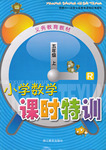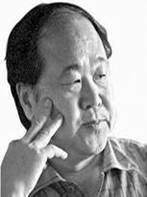题目内容
Sally was fourteen.She studied in a middle school.She liked dancing and singing and 1 a lot of time on them.But she hated math and even decided to 2.Her father was worried about it.
It was Sunday. Sally’s father gave a call to his sister who 3 math in another school. He hoped she would come and tell his daughter 4 to learn math.The woman came and said,“You are a 5 girl.Sally.I’m sure you will soon learn math well if you do your 6.”
“I’m afraid I can’t,Aunt,”said Sally.“Girls 7 be good at math.”
“I don’t think so,”said the woman.“1 was good at it when 1 was a 8.You must do more 9 and try different Ways to solve(解决)math problems until you work them out,or at least 10 them better. Here is a math 11.Please think it over and see if you can work it out.
“OK,” said the girl. “Let me 12 ”
About an hour later Sally 13 the exercise book to her aunt and said, “I’ve tried many times and worked out the problem at last!”
“Well done!” her aunt looked at her answer and said 14 , “Now you see, math is not as difficult as you 15 ”
It was Sunday. Sally’s father gave a call to his sister who 3 math in another school. He hoped she would come and tell his daughter 4 to learn math.The woman came and said,“You are a 5 girl.Sally.I’m sure you will soon learn math well if you do your 6.”
“I’m afraid I can’t,Aunt,”said Sally.“Girls 7 be good at math.”
“I don’t think so,”said the woman.“1 was good at it when 1 was a 8.You must do more 9 and try different Ways to solve(解决)math problems until you work them out,or at least 10 them better. Here is a math 11.Please think it over and see if you can work it out.
“OK,” said the girl. “Let me 12 ”
About an hour later Sally 13 the exercise book to her aunt and said, “I’ve tried many times and worked out the problem at last!”
“Well done!” her aunt looked at her answer and said 14 , “Now you see, math is not as difficult as you 15 ”
| 小题1: |
|
| 小题2: |
|
| 小题3: |
|
| 小题4: |
|
| 小题5: |
|
| 小题6: |
|
| 小题7: |
|
| 小题8: |
|
| 小题9: |
|
| 小题10: |
|
| 小题11: |
|
| 小题12: |
|
| 小题13: |
|
| 小题14: |
|
| 小题15: |
|
小题1:A
小题2:B
小题3:A
小题4:C
小题5:D
小题6:D
小题7:A
小题8:C
小题9:D
小题10:B
小题11:C
小题12:B
小题13:B
小题14:D
小题15:D
试题分析:这篇短文中萨利认为数学很难,自己不可能学好.最后在自己的姑姑的帮助下,终于客服了这个困难,树立起了学习数学的信心.
小题1:词义辨析。take 用于 it takes sb ... to do sth句型,仅指花费时间(three hours等),必须用it作形式主语,指代下文不定式内容;spend用于sb spend...on sth或者sb spend...in doing sth(in可以省略),spend的主语必须是人,可以指花费时间、也可以指花费金钱;cost用于 sth costs sb sth,主语必须是物,多指花费金钱,少数情况可指花费时间、气力,有时表示成本的消耗;pay的基本用法是:(1) pay (sb.) money for sth. 付钱(给某人)买……。 (2)pay for sth. 付……的钱。 (3)pay for sb. 替某人付钱。(4)pay sb. 付钱给某人。联系上文可知主语是人,故选A。
小题2:短语辨析。A.放好,抛弃;B.放弃,交出;C.放弃,泄露;D.建造,举起。联系上文,可知他决定放弃数学,故选B。
小题3:联系下文,可知萨利的姑姑教数学,故选A,教。
小题4:疑问词辨析。A.什么时候;B.在哪儿;C.怎样;D.为什么。结合语境可知萨里的父亲是想让自己的妹妹来教女儿怎样学数学。故选C。
小题5:形容词辨析。A.奇怪的,陌生的;B.穷的,可怜的;C.瘦的;D.聪明的。结合语境可知萨利的姑姑应该说她是一个聪明的女孩,故选D。
小题6:结合语境可知考查短语do one’s best尽某人最大努力,故选D。
小题7:情态动词辨析。A.不能,可能不;B.禁止,一定不;C.不必;D.不应该。联系上文,可知萨利认为女孩不可能擅长数学。故选A。
小题8:联系上文,可知她的姑姑说我是个教师,故选C,教师。
小题9:词义辨析。A.阅读;B.运动;C.家务;D.练习;结合语境可知此处指的是多做练习,故选D。
小题10:词义辨析。A.写;B.理解,明白;C.抄写;D.讨论。结合语境可知此处指的是:至少你能更好的理解他们。故选B。
小题11:联系下文,可知此处指的是这是一道数学题,故选C,问题.
小题12:词义辨析. A.说;B. 尝试;C.用;D.制作.联系上文,可知句意为:让我试试.故选B.
小题13:动词辨析. A.离开,留下;B.拿,带走;C.买;D.移动.结合语境可知此处指的是萨利把数学本拿给她的姑姑看,故选B.
小题14:联系上文,可知她的姑姑高兴地说,故选D,高兴地.
小题15:动词辨析. A.看见;B.听见;C.问;D.想,认为,联系上文,可知此处指的是数学并不像你想的那样难.故选D.
点评:本题设空科学合理,考生不难从中领会大意,从而下手会比较顺利,从选项中可以看出,本大题主要还是考查了词汇的辨析与运用,但更加注重综合语言能力的运用,需要根据故事情节,了解词汇用法的同时,结合语境,做出准确的判断。

练习册系列答案
 小学课时特训系列答案
小学课时特训系列答案
相关题目

